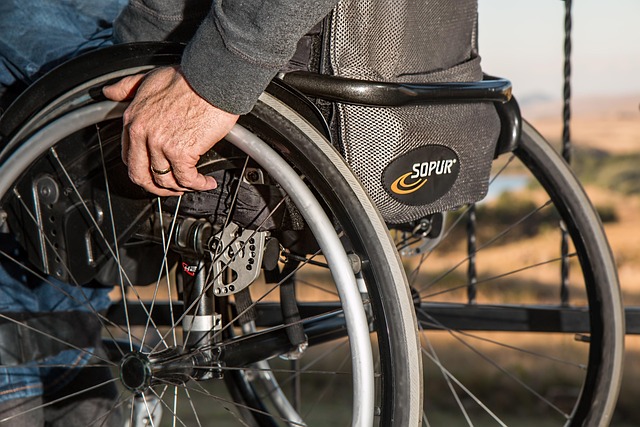Anger control therapy through group sessions offers a holistic approach to managing anger effectively. It combines cognitive restructuring, relaxation exercises, and problem-solving skills, fostering a supportive community where participants learn from peers and gain insights into their triggers. These sessions use CBT and mindfulness training to identify negative thought patterns and practice present-moment awareness. Active participation through structured activities and interactive tools strengthens the therapy's effectiveness. Success stories prove its power in reducing impulsive behaviors like road rage. Tailored approaches, peer support, encouragement, and relapse strategies overcome challenges. Integrating relaxation and mindfulness techniques enhances emotional regulation, improves relationships, and boosts overall well-being, leading to long-term success.
Anger management group sessions offer a powerful tool for individuals seeking effective anger control therapy. This comprehensive approach combines psychological techniques with peer support, fostering a safe environment for participants to learn and grow. By delving into various strategies, from active participation facilitators to mindfulness integration, these sessions empower individuals to manage their anger healthily. The article explores the benefits, challenges, and long-term impacts of group therapy, providing insights into its role as a transformative and sustainable solution for anger control.
Understanding Anger Control Therapy: A Comprehensive Approach

Anger control therapy is a comprehensive approach designed to help individuals understand and manage their anger effectively. It goes beyond mere suppression, encouraging active coping strategies and emotional awareness. Through this therapy, participants learn to identify triggers, recognize early signs of anger, and respond rather than react. Techniques such as relaxation exercises, cognitive restructuring, and problem-solving skills are often taught to help individuals navigate intense emotions constructively.
Group sessions play a pivotal role in anger control therapy by fostering a supportive environment where members can share experiences, gain insights from peers, and learn from each other’s successes and challenges. These sessions promote accountability, offer immediate feedback, and facilitate a deeper understanding of anger dynamics within interpersonal relationships. By participating in group discussions and interactive activities, individuals develop healthier ways to express and channel their emotions, ultimately leading to improved emotional regulation and reduced anger-related behaviors.
The Benefits of Group Sessions for Anger Management

Group sessions for anger management offer a unique and highly beneficial environment for individuals seeking to improve their emotional regulation. Unlike one-on-one therapy, group settings encourage peer support and shared experiences, fostering a sense of community among participants. This dynamic allows members to learn from one another’s challenges and successes in managing anger, creating a powerful learning curve accelerated by collective wisdom.
Moreover, group sessions facilitate open discussions on anger triggers, coping strategies, and effective communication techniques. The collective atmosphere promotes active participation, enabling individuals to gain new insights and perspectives on their anger. Through interactive exercises, role-playing scenarios, and group reflections, participants can develop practical skills in anger control therapy while receiving immediate feedback from peers and facilitators. This holistic approach not only enhances personal growth but also builds a support system that continues to benefit individuals long after the sessions conclude.
Creating a Safe and Supportive Environment in Group Settings

In anger management group sessions, fostering a safe and supportive environment is paramount for effective anger control therapy. Participants must feel comfortable expressing their emotions freely, knowing that their peers and facilitators will respect their boundaries and privacy. This non-judgmental atmosphere encourages open communication, allowing individuals to share their experiences and learn from one another. Group members can offer empathy, understanding, and practical strategies for coping with anger in a collective setting.
Creating this safe space involves establishing clear rules and expectations at the outset. Facilitators should emphasize confidentiality, active listening, and respectful dialogue. By modeling appropriate behavior and providing regular feedback, facilitators guide participants towards constructive interactions. Such a supportive environment not only enhances learning but also fosters trust, making it easier for individuals to confront and manage their anger in a healthy manner.
Techniques Used in Anger Management Group Sessions

Anger management group sessions employ a variety of effective techniques aimed at helping individuals gain better control over their emotions. One common approach is cognitive-behavioral therapy (CBT), which focuses on identifying and challenging negative thought patterns that contribute to anger. Participants learn to replace these thoughts with more positive, balanced perspectives, thereby reducing impulsive reactions.
Another powerful tool used in these sessions is mindfulness training. By teaching individuals to be present in the moment and aware of their bodily sensations, mindfulness helps them recognize signs of escalating anger early on. This awareness allows for a pause, enabling participants to choose a calmer response instead of reacting impulsively. Role-playing exercises are also often incorporated, providing a safe space to practice new coping strategies in simulated scenarios that mimic real-life anger-provoking situations.
Encouraging Active Participation: Strategies for Facilitators

Encouraging active participation is a key strategy for facilitators running anger management group sessions. To foster a productive environment, leaders should create opportunities for members to share their experiences and insights openly. This can be achieved through structured activities that promote dialogue, such as guided discussions, role-playing scenarios, or small group breakouts. By actively engaging participants in these activities, facilitators not only enhance learning but also build a sense of community, which is vital for effective anger control therapy.
Additionally, using interactive tools like worksheets, polls, and icebreakers can help break the ice and make sessions more engaging. Facilitators should also be mindful of creating a safe space where individuals feel comfortable expressing their feelings without fear of judgment. This inclusive approach encourages members to actively participate, share coping strategies, and learn from one another, ultimately strengthening the overall effectiveness of anger management therapy.
Case Studies: Real-Life Success Stories from Group Therapy

In the realm of anger management, group therapy sessions have proven to be a game-changer for many individuals struggling with anger issues. Real-life success stories from these groups highlight their effectiveness in teaching participants anger control techniques and fostering a supportive environment. One such case involves a young professional who struggled with frequent road rage, leading to costly tickets and strained relationships. Through group therapy, he learned mindfulness exercises to calm his emotions and effective communication skills to resolve conflicts peacefully.
Another inspiring story is that of a teenager who had difficulty managing anger in social settings, often resulting in physical altercations. With the guidance of anger control therapy and peer support in the group, she developed healthier coping strategies and improved her relationships significantly. These success stories demonstrate how group sessions can empower individuals to take control of their emotions, reduce impulsive behavior, and lead more fulfilling lives.
Addressing Common Challenges in Anger Control Programs

Many anger management programs face challenges in effectively helping participants gain control over their anger. One common hurdle is the diverse range of underlying causes for anger, which can vary greatly from person to person. This makes one-size-fits-all approaches less effective; anger control therapy needs to be tailored to individual needs and circumstances. For instance, while someone might express their anger verbally, another person may externalize it through physical aggression, requiring distinct strategies for intervention.
Another challenge lies in maintaining motivation throughout the program. Anger management is a process that demands commitment and consistency, which can be difficult for participants to sustain. Group dynamics play a crucial role here; peer support and encouragement within the session can significantly boost motivation. Facilitators also need to be adept at handling relapses and setbacks, offering guidance and strategies to help individuals manage their anger more effectively going forward.
Integrating Relaxation and Mindfulness into Session Plans

Integrating relaxation and mindfulness techniques into anger management group sessions can significantly enhance their effectiveness. These practices offer participants powerful tools to manage and regulate their emotions, a key aspect of anger control therapy. By incorporating moments of quiet reflection and deep breathing exercises, individuals can learn to pause before reacting, fostering a sense of calm and perspective.
Mindfulness encourages participants to focus on the present moment, observing their thoughts and feelings without judgment. This practice helps break the cycle of impulsive reactions often associated with anger. Relaxation techniques, such as progressive muscle relaxation or guided imagery, further support emotional balance by reducing physical tension and promoting a sense of tranquility. Together, these integrated approaches create a supportive environment where group members can explore and express their emotions in a controlled manner, fostering personal growth and improved interpersonal relationships.
Long-Term Effects and Follow-Up Care After Group Sessions

After completing anger management group sessions, participants often experience significant long-term effects that contribute to their overall well-being and personal growth. Anger control therapy provides individuals with valuable skills to manage and regulate their emotions effectively. These skills empower them to respond to challenging situations calmly and constructively, reducing the likelihood of impulsive behaviors or explosive reactions. Over time, this can lead to improved relationships, better job performance, and a higher quality of life.
Follow-up care is an essential component of sustained improvement. Group facilitators often offer ongoing support through check-ins, additional resources, or even one-on-one sessions. This continued care helps individuals reinforce the anger management techniques learned during the group sessions and navigate any future challenges that may arise. Regular practice and reinforcement are crucial to maintaining progress in anger control therapy, ensuring that participants can continue to benefit from their newfound skills long after the initial program ends.
